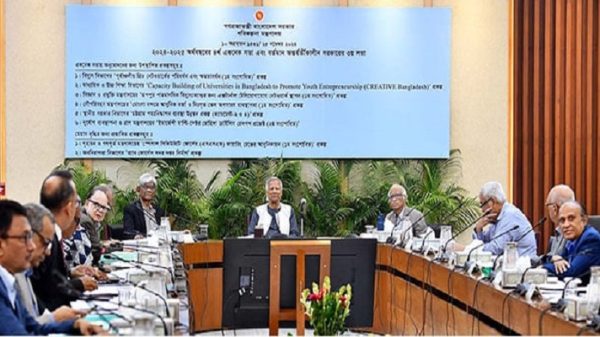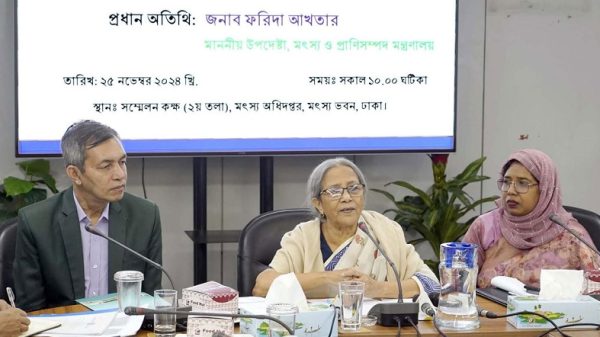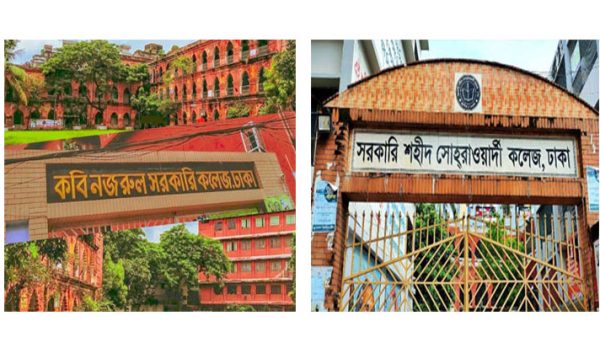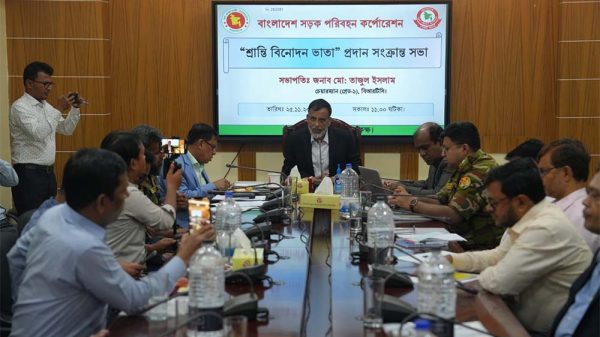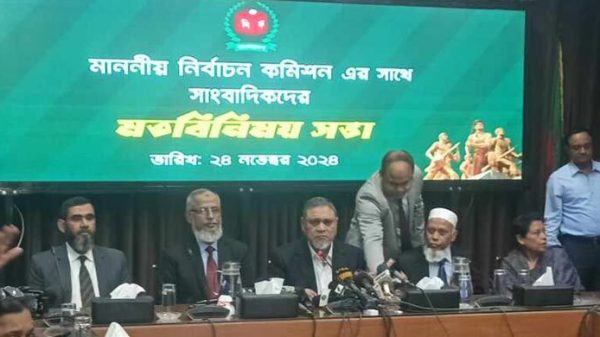17 invasive plant species identified in 5 protected areas: Environment Minister

- Update Time : Wednesday, 22 February, 2023, 03:34 pm
- 162 Time View
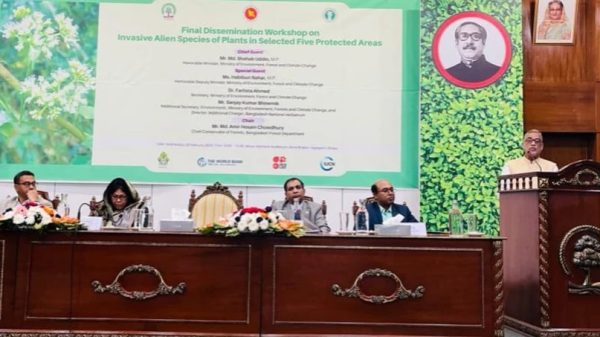
Online Desk: Bangladesh National Herbarium has identified 17 foreign invasive plant species harmful to Bangladesh under the Sustainable Forest and Livelihood Project of the Forest Department, seven of which are major, said Environment, Forest and Climate Change Minister Md. Shahab Uddin. “Under this programme, five strategic management plans have been formulated for the proper management of the alien invasive plant species in five protected areas of the country-Himchari, Kaptai and Madhupur National Parks and Rema-Kalenga and Sundarban East Wildlife Sanctuaries,” he said, UNB reports.
These management strategies will play an important role in conserving national forests and forest resources and achieving the sustainable development goals, said the minister. He said these at the final workshop of the program titled ‘Developing Bangladesh National Red List of Plants and Developing Management Strategy of Alien Species of Plants in Selected Protected Areas’ organized at the Forest Department on Wednesday. The minister said under this program, which is being implemented with the help of the World Bank and the support of International Union for Conservation of Nature (IUCN) all these invasive plants can be controlled by preventing their marketing and trade that have a negative impact on the environment, economy and society, and by eliminating them from the ecosystem and preventing their spread.
Moreover, preventive measures such as early detection, screening for imported plant species and quarantine procedures would be easy to incorporate, he added. The environment minister said that as one of the signatories to the Convention on Biological Diversity, Bangladesh is committed to protecting ecosystems and biodiversity. “Therefore, it is necessary to ensure the conservation of indigenous plant species and forest areas by fully identifying all alien invasive plant species in all areas including 51 protected areas that have the ability to compete with native species spread in different protected areas and forest areas of the country, change the ecosystem and disrupt the food chain, and formulate their proper management strategies,” said the minister.
Professor Dr. Mohammed Kamal Hossain presented the final results of Invasive Plants and its Strategic Management Plan of 5 protected areas namely Himchhari National Park, Kaptai National Park, Madhupur National Park, Rema-Kalenga Wildlife Sanctuary, and Sundarban East Wildlife Sanctuary. Specialists, researchers and field level officers of Forest Department also discussed the issues. Secretary to the Ministry of Environment, Forest and Climate Change Dr. Farhina Ahmed, Additional Secretary and Director of Bangladesh National Herbarium Sanjay Kumar Bhowmik, Gobinda Roy, Project Director of SUFAL Project and Rakibul Amin, Country Representative of IUCN Bangladesh spoke at the workshop as special guest chaired by Md. Amir Hossain Chowdhury, Chief Forest Conservator of the Forest Department.

